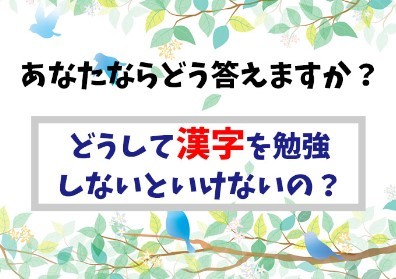The expression なら (nara) means if, in case that, if that is the case.
なら is one of the many Conditional forms in Japanese. Other conditional forms are:
- Form in ば
- たら
- と
While each of these forms can be translated as if, each of these is used in different situations and with different meanings.
なら is an abbreviation for ならば, which in turn is the hypothetical form (仮定) of なり
In this post we learn more about the meaning of なら, how it is formed, and when なら is used through real example sentences.
How なら is formed
なら can follow nouns, verbs, and adjectives. For verbs and adjectives in な it is possible to add の before なら:
Adding の makes the condition stronger (adds emphasis to the 'if ... ')
Let's now look at some examples of conjugations.
なら Verb conjugation
Conjugation of adjectives in い for なら
Conjugation of adjectives in な for なら
なら Noun conjugation
Connective Particles - 接続助詞
なら is a connective particle (接続助詞 setsuzoku joshi). Connective particles in Japanese are most often used in combination with verbs and adjectives to extend their meaning and relationship.
Other connective particles in Japanese are:
- けれども
- から
- くせに
- のに
How and when to use なら
The main use of なら is for hypothetical situations. なら is translated as if or when in these cases depending on the type of condition.
なら indicates that something is possible if only a certain condition is true.
なら is also called "contextual particle": this is because it is equivalent to if you are talking about this, then ... or if this is the context, then ....
ここは禁煙です。煙草を吸うなら、外へ出てください。
Smoking is prohibited here. If you want to smoke, please go outside.
なら expresses an assumption on the part of the speaker. It is meant to indicate that if what I think is actually true, then I will behave in a certain way.
夕方なら行けると思います。
If it's evening I think I can come.
Under what conditions can なら be used
なら does not presuppose some temporal order of the two situations being compared (differently from たら). For this reason, you can use なら to indicate consequences for both past and future conditions.
行くなら分かる。
When you go then you will understand.
In this example we see a future condition: if you go (future) then you will understand it.
もし私にもっとお金があったなら、そのペを買ったであろうに。
If I had more money, I would have bought that pen.
This second example instead shows a past condition: if I had more money (past) then I would have bought that pen.
You cannot use なら if the expressed condition is sure to happen.
In fact, なら indicates a guess: the situation is uncertain and may not happen as expected. For this reason, なら is not used for sure conditions.
An example of a sentence with a wrong use of なら is the following:
練習をするなら、漢字を書くのが上手になる。
If you practice, you will become better at writing kanji. (⛔️)
In this case, becoming good at something is the natural and direct result of practicing, it is not a hypothetical condition. For this reason, the use of なら is unnatural.
Another wrong example is the following:
秋になるなら
If it becomes autumn (⛔️)
In fact, becoming autumn is not a hypothetical event, it is certain that sooner or later it will become autumn. Again, なら cannot be used.
なら to make suggestions or requests
なら can also be used to make suggestions or requests. In this case, the typical translation is if you're going to do ..., then ....
乗るなら飲むな。
Don't drink when driving.
In this example, we ask you not to drink 飲むな in case you drive 乗る.
私があなたならそんなことはしない。
If I were you I wouldn't do that.
なら at the end of the sentence
In spoken language, なら is commonly used at the end of a sentence to indicate regret or to express disappointment about the situation:
今日が金曜日ならなあ。
If only today were Friday.

あなたならどう答えますか。どうして漢字を勉強しないといけないの?
How would you answer? Why do I have to study the Kanji?
Examples of なら
男に生まれたなら進む以外の道などない。
If you were born a man there is no option but moving forward.
それなら話は早い。
That makes it easy.
カメラを買いたいなら、秋葉原に行った方がいいです。
If you want to buy a camera, it's best to go to Akihabara.
Similar grammar points in Japanese 📚
~ていく
~ていく (teiku) Meaning Japanese Grammar - Keep Doing
てよかった
てよかった (te yokatta) Meaning Japanese Grammar - I'm Glad That...
それでもいい
それでもいい (soredemoii) Meaning Japanese Grammar - It's Fine
それでも
それでも (sore demo) Meaning Japanese Grammar - Still
させられる・せられる
させられる・せられる (saserareru serareru) Meaning Japanese Grammar - To Be Made To Do Something
ないで
ないで (naide) Meaning Japanese Grammar - Without Doing